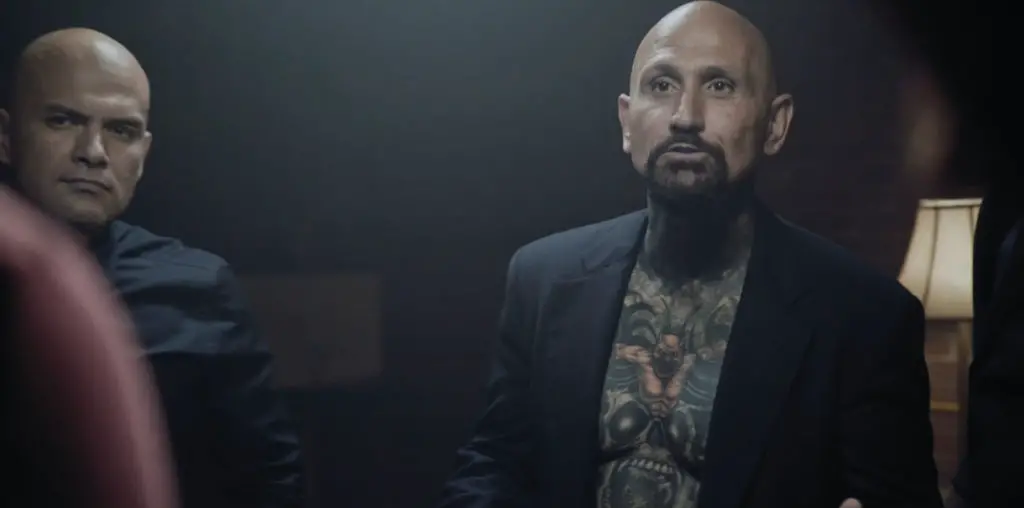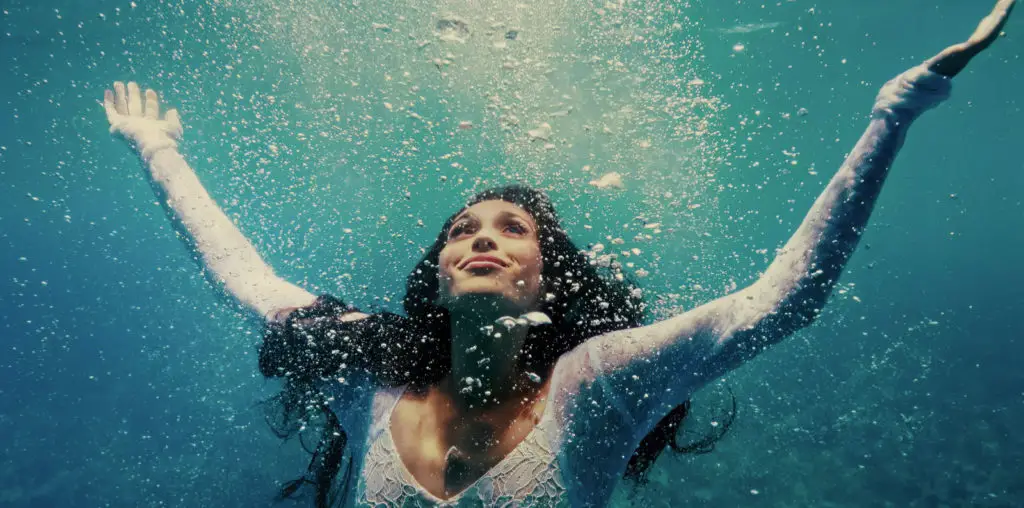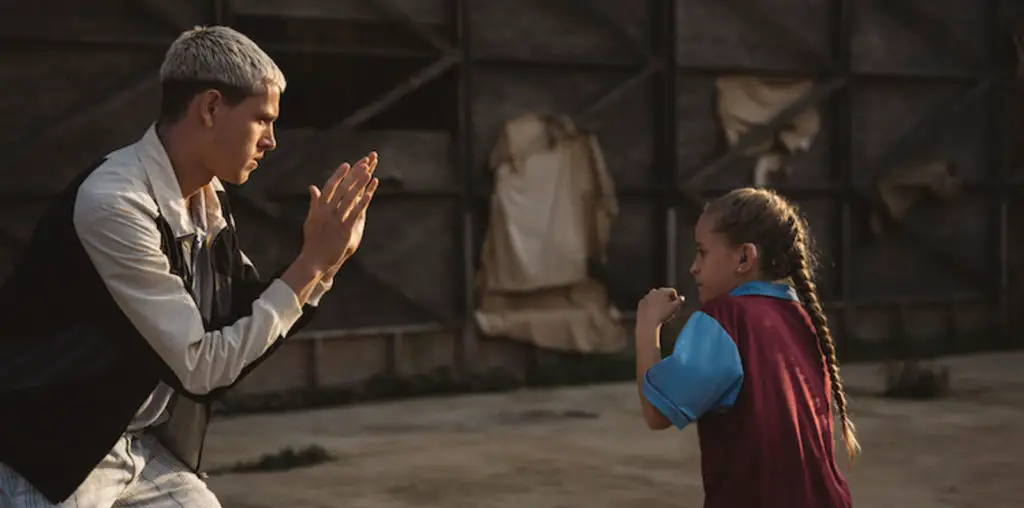
In the satirical Czech comedy The Owners, writer-director Jiří Havelka ventures inside an unadorned conference room during a homeowner association meeting. A group of residents living in a dilapidated apartment building meet to address community safety and building maintenance problems. But since every guest has their own personality and belief system, they struggle to see the big picture and agree on any one issue to act on. The result is a cleverly chaotic and emotionally taut 90-minute meeting between intractable minds.
When people are forced to be in close proximity for long stretches of time, their worst qualities begin to show. Now, the residents aren’t absolute strangers, but neither are they friends. Mrs. Zahrádková (Tereza Ramba) is the chair of the HOA, hoping to persuade the other tenants and co-owners of the complex to put emergency funds aside for building maintenance. She’s a mother, so it’s understandable that she would want to maximize safety. Her husband, Mr. Zahrádka (Vojtěch Kotek), supports her mission. But almost immediately, awkwardness and hostility abound as Mrs. Zahrádková suggests that her husband record the meeting, and not everyone is keen on the idea.
The HOA moderator, Mrs. Roubíčková, is played by a brilliantly austere Klára Melíšková, whose line delivery is appropriately formal and stares appropriately flinty. She asserts that they must vote before any decision is made, and nobody is allowed to leave before the meeting ends. Everyone, including the viewer, isn’t given the chance to breathe. The entirety of The Owners is one prolonged meeting made up of tense, meandering conversations and disputes that evolve and dissipate abruptly. As such, the experience is wearying. But because Havelka instills the altercations with a mordant sense of humor, the disorder is purposeful, functioning to convey our propensity to disagree in the moment without reserving time for reflection.
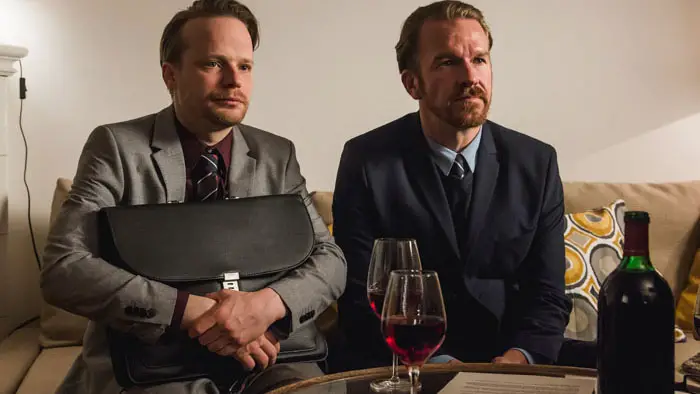
“…ventures inside an unadorned conference room during a homeowner association meeting.”
The guests go from discussing water consumption to safety and waste. On almost every topic of discussion, their views drastically diverge from each other, which would be fine if they were able to listen and discuss attentively. But, most of them are too refractory, pugnacious, and narrow-minded. Ms. Horvathova (Dagmar Havlova) derives pleasure in getting a rise out of the others. For instance, she makes ill-suited comments about Mr. Nitranský (Andrej Polák) being gay. Mr. Kubát (Jiří Lábus) is completely resistant to change. Despite being a group of people who respect the voting process, how can Mrs. Zahrádková prompt any formal action if she can’t get everyone on the same page, no matter how hard she tries to be rational? Her frustration is relatable.
Wearing a dark red jacket that seems to give her a pep in her step, Mrs. Zahrádková is initially confident. But gradually, as the residents impart their snarky and unfounded remarks, she loses patience. Throughout The Owners, Ramba is completely enthralling, delineating the character’s pent-up frustration through subtle movement. Whether it’s how she grips the pencil, frantically moves her hands, or sometimes appears to be desperately trying to hold her tongue, all hints point to her erupting at some point.
The characters are primarily framed in medium shots while surrounded by plain walls and a cluttered table. Over the course of the meeting, there are well-timed cutaway shots of apartment rooms and technical flaws present within the foundation, reminding viewers that the tenants are indeed living in a neglected living space. Sardonically, most residents don’t recognize or just don’t care to address these problems properly. And while the middle section shows signs of wear, the filmmaker sticks the landing with a grossly cynical and modestly unsettling development.
“We can always come to an agreement. We’re adults.” This line, said by a businessman, is obviously a falsehood based on everything we witness in this homeowner association meeting. The Owners is an uncomfortable and pointed satire that will remind you how and why some things never change.
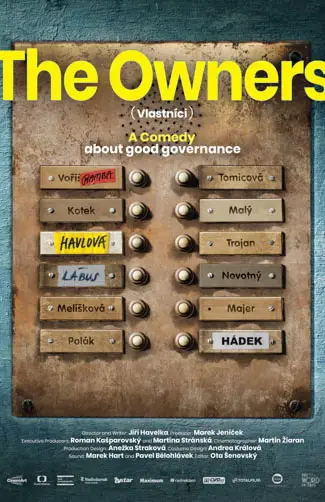
"…uncomfortable and pointed satire..."
